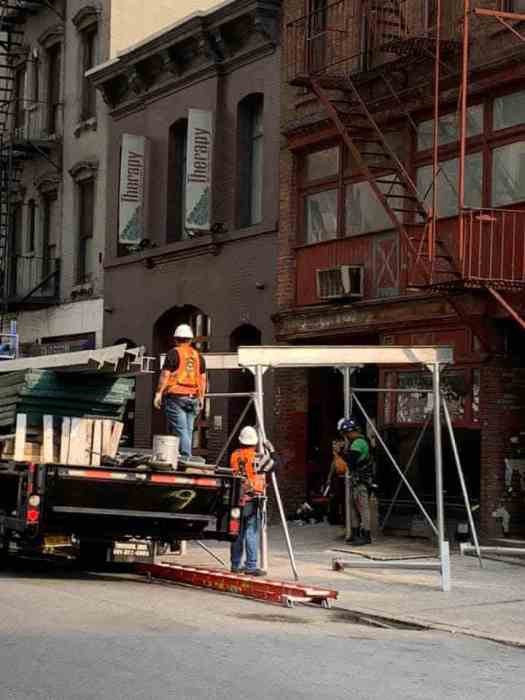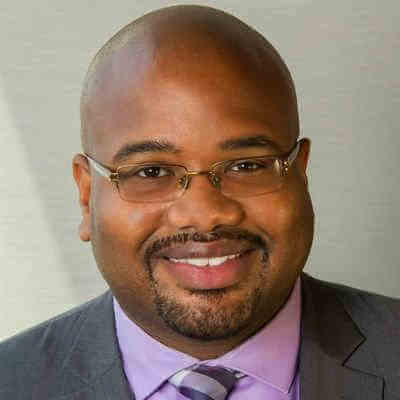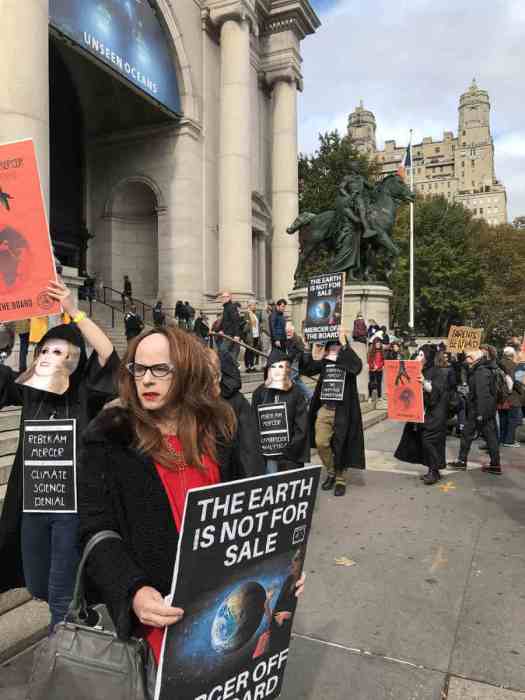An overflow crowd numbering well over 100 –– with more than 100 more turned away by security staff at the Adam Clayton Powell Jr. State Office Building on West 125th Street –– was testament to the hunger in Harlem for forging stronger social, political, and support ties among a diverse and growing LGBT population there.
“Harlem is becoming the unofficial home of black and Latino gay men, lesbians, bisexuals, and transgender people,” said Manny Rivera as he opened up the meeting. “And I say black and not African-American, because I am talking about African Americans, but also Caribbean Americans and African immigrants, as well.”
Rivera is a member of Manhattan Community Board 10 and heads up its new LGBTQ Task Force, which along with Borough President Gale Brewer, played host to the November 5 town hall.
Rivera and others noted the growing LGBT visibility in Harlem, though different sentiments were expressed about how new this was for the neighborhood and how receptive the neighborhood is to its LGBT brothers and sisters.
John-Martin Green –– founder of the Gatekeeper’s Collective, which aims at “igniting the power of black same gender love” –– termed the gathering “an historic event because now there is such a task force. For the first time in the history of Harlem, we have convened in celebrating our community, while identifying gaps in policies and services. The second Harlem Renaissance is upon us, and this is a Harlem that is more inclusive and collaborative and productive than ever before.”
But Judge Franc Perry, a former CB 10 chair who in 2011 became the city’s first out gay black man elected to the judiciary, when he won a seat on the Family Court, suggested the spirit the evening was celebrating was not necessarily something new. Recalling that “before I got into politics, I was told to get a downtown address because Harlem wasn’t ready,” he said he ignored the advice because “Harlem was always inclusive.”
Not everyone in the audience shared Perry’s upbeat assessment. A man who identifies as two-spirit stood up and, explaining he lives at 120th Street and Seventh Avenue, said, “I don’t feel safe there.”
Others in the audience reflected the pressures of rising housing costs that all Harlemites, LGBT and otherwise, feel as the new “renaissance” takes hold. One man talked of the importance of tenants finding legal representation as we “lose our space in Harlem, in New York City.”
For sure, the evening emphasized significant support that non-LGBT members of CB 10 and other Harlem leaders are offering their LGBT neighbors.
Brian Benjamin, CB 10’s second vice-chair, said he had responsibility to make sure the full board followed up on the task force’s recommendations, singling out specifically the “need for behavioral changes, especially on the part of some police officers.” Benjamin explained that his older brother is gay, “but the family ignored it for a long time.” For his family and for Harlem, he said, “We need to deal with the family stuff.”
State Senator Bill Perkins, a longtime LGBT advocate both in Albany and in his years on the City Council, told the audience, “I buried a brother who died of AIDS.” Then, urging the crowd to keep up the pressure on him and other elected officials, he said, “I hope you take advantage of the fact that we embrace you. We don't come just to be marked for attendance; we come for assignments.”
Rivera and others lauded Perkins and Brewer –– both of whom stayed for the entire town hall that ran to nearly two and a half hours, speaking at both the evening’s beginning and end –– for their proven commitment to support the task force and the community. Brewer noted that of 600 members of Manhattan’s 12 community boards, 43 –– roughly seven percent –– are openly LGBT, a figure she would like to see grow. Rivera confirmed that “Gale has committed to specific outreach for more LGBT members.”
The town hall opened on a celebratory note, with the task force honoring five leaders, Judge Perry included, and there the longstanding commitment of some non-LGBT Harlem leaders was emphasized. Among the honorees was 83-year-old Hazel Dukes, a past president of the NAACP who was described as having been “on the forefront of embracing the LGBT community” within the Civil Rights Movement.
The other honorees were Harlem Pride president Carmen Neely, NYC Black Pride executive director Lee Soulja, and Kim Watson, the founder of CK Life, which offers members of the trans community life tools within the context of community and kinship.
All three reflected on the theme of building community in Harlem. Neely explained that Harlem Pride began as a block party in 2010. “I thought it would be a one-time event,” she said. “I didn't realize the need it filled.”
Soulja said his goal at NYC Black Pride is “bringing everyone to the table. It’s not a black gay man dictating what a lesbian pride event should be, what a trans pride event should be. It definitely takes a village to make Black Pride happen every year.”
Watson, the evening’s liveliest speaker, said, “I never accept a no… I have the audacity. We can only win this by bringing each other up.”
As the town hall opened up to audience comments, a number of key issues emerged, the most compelling of which was the vulnerability felt by transgender residents of Harlem. Several transgender men and women spoke out about the need for unity and action among their trans brothers and sisters and for greater focus on the T within LGBT groups.
Among the trans initiatives mentioned at the meeting was a November 17 “call to action” by the New York Transgender Advocacy Group and the National Black Leadership Commission on AIDS for a trans-led town hall to discuss Governor Andrew Cuomo’s blueprint for the Plan to End AIDS by 2020. That meeting takes place from 5-8 p.m. on the third floor of 215 West 125th Street.
On November 21, LGBT Faith Leaders of African Descent will host an afternoon Trans Day of Remembrance event that will include performances, a panel discussion, and a reading of names of transgender people killed in hate violence. That events takes place from 2:30 to 5 p.m. at the Faison Firehouse at 6 Hancock Place, near 124th Street, between Morningside and Manhattan Avenues.
Others at the town hall raised concerns regarding mental health services. Journalist and activist Antoine Craigwell talked about Depressed Gay Black Men, a group he founded to bring attention to what he sees as unaddressed mental health needs in the African-American community. Some gay and bisexual men, he asserted, “are contracting HIV as a passive form of suicide,” and then failing to get connected to treatment that could keep their infection under control.
The issue that perhaps resonated most strongly among the town hall attendees was a marquee-style sign that has hung outside the Blood of Jesus Atlah World Missionary Church at 123rd Street and Lenox Avenue and, for the past several years, broadcast stridently homophobic messages. Currently, one side of the marquee reads, “Join the revolution to drive the sodomite interlopers, freaks and slave master land grabbers out of Harlem.” The flip side reads, “You sodomites and freaks have soiled Harlem but ye shall be moved. Payback is a bitch.”
According to CB 10’s Rivera, protests outside the church have only served to boost pastor James David Manning’s efforts to raise money. Working with Brewer’s office, community leaders have concluded the marquee itself violates restrictions placed on the building because of its landmarked status. The borough president advised that calls to 311 would in time prompt action from the city.
Rivera said community leaders are also planning a Christmastime prayer vigil outside the church –– “just like in the Civil Rights Movement” –– to rally Harlem leaders and residents who want to stand with the LGBT community. A meeting to organize that vigil will take place on November 19 at 5 p.m. on the third floor at 215 West 125th Street.
Brewer in her closing remarks also pledged to work with Harlem LGBT leaders looking to create a community center in the neighborhood. Both the Ali Forney Center, which serves LGBT youth, and SAGE, Services and Advocacy for GLBT Elders, have their own spaces in Harlem, but the borough president agreed with others who spoke up saying a multi-purpose center serving as wide a variety of needs and interests as possible would be ideal.
“I think the community center should be a big focus,” Brewer said. “The good news is that you’re not alone. Community Board 12 [serving Washington Heights and Inwood] is starting an LGBTQ task force, and they are focused on a community center, as well.”
Rivera closed the meeting by mentioning another major initiative in Harlem –– the creation of Pride & Power, a group representing the interests of the black and Latino LGBT community in Upper Manhattan. He credited the Stonewall Democrats of New York City with advocating for the community citywide but said he and others in Harlem have been meeting recently to forge a similar group representing LGBT people of color. The next meeting of that planning group takes place on November 21, and Rivera said a “coming out” announcement formally launching Pride & Power would follow shortly.







































